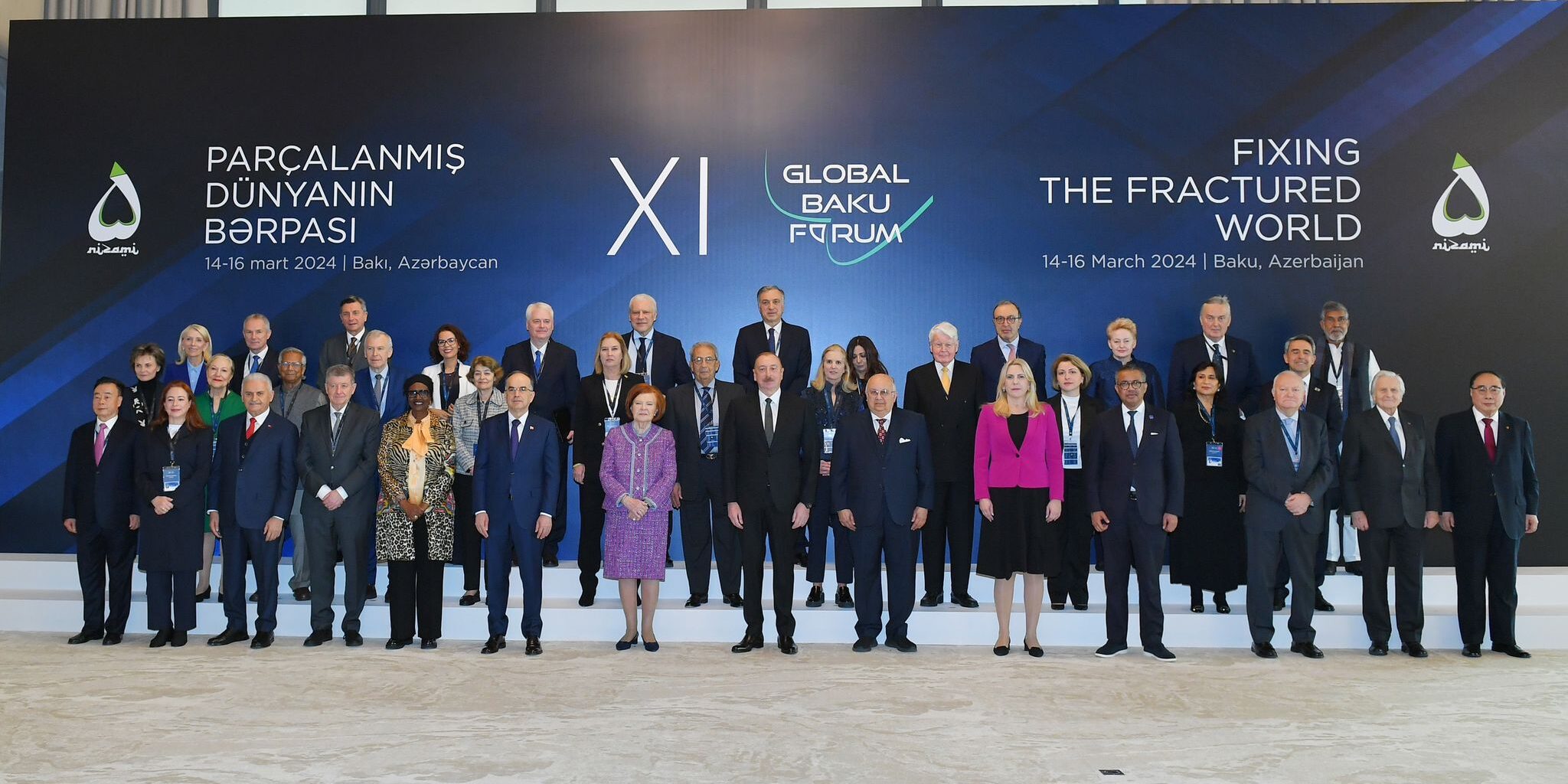How Can We Fix the Fractured World?
The strategic director of Blue Planet Foundation, ambassador Csaba Kőrösi contributed to the high-level dialogue in the 11th Global Baku Forum, held by the Nizami Ganjavi International Centre, on 14-16 March 2024 in Baku, Azerbaijan.
During the Global Baku Forums Nizami Ganjavi International Centre (NGIC), made up of heads of state and government and international leaders, seeks answers and solutions to the biggest challenges and crises facing the world. The theme of the 11th Forum was fixing the fractured world. Mr Kőrösi was invited to speak on Panel 3 about Fixing Global Governance in regard to preparation for the Summit of the Future.
Seeing the shortcomings participants highlighted several needs to reform the UN crisis management architecture during the discussions. The need for reform is underpinned by the facts, that armed conflicts are still rising in number, also in complexity, and duration; more people are dying out of non-conventional crises than spreading wars, and more and more damage is caused by these non-conventional crises. Crisis management must be as integrated as the challenges are. The complexity of the challenges makes it clear that crisis management must become equally complex if real results are to be achieved.
The current structure of the United Nations (UN) has been designed to respond to the challenges of the post-World War II, decolonization, and the post-Cold War era. Therefore is not well-equipped to foresee and meet future challenges and crises Shortly and even at present it has to deal with unchecked Artificial Intelligence (AI), water crises, the collapse of societies due to depletion of natural capital, social impact of the sovereign debt crisis. While the budgeting mechanisms focus on past events and procedures related to inherited challenges.
The Security Council (SC) is supposed to be the beacon of peace and security, but today is more part of the problem. The 15 years of Intergovernmental Negotiations (IGN) could not lead to negotiating blocks to come together on a minimal version of a reform proposal. IGN has not been designed to expedite SC reform. Some countries may lose faith and start avenues other than IGN.
The General Assembly deals with too many symbolic, single-use, little-impact resolutions. In times of surging crises, 80% of the debates are about the past and inherited grievances. Almost all debates are dominated by the geopolitical mentality and zero-sum game approach.
“In the panel discussions, as well as in the personal conversations, we have argued that a change in approach and methodology is essential alongside with reforming of the institutional structure. If the need for sustainability transition is taken seriously, we can’t apply zero-sum game logic increasingly to addressing challenges related to global commons. The latter can be mitigated via improved cooperation. Complex crises can be addressed through an integrated approach, based on scientific evidence. It is time to regard human responsibilities together with our human rights” – emphasized Csaba Kőrösi
